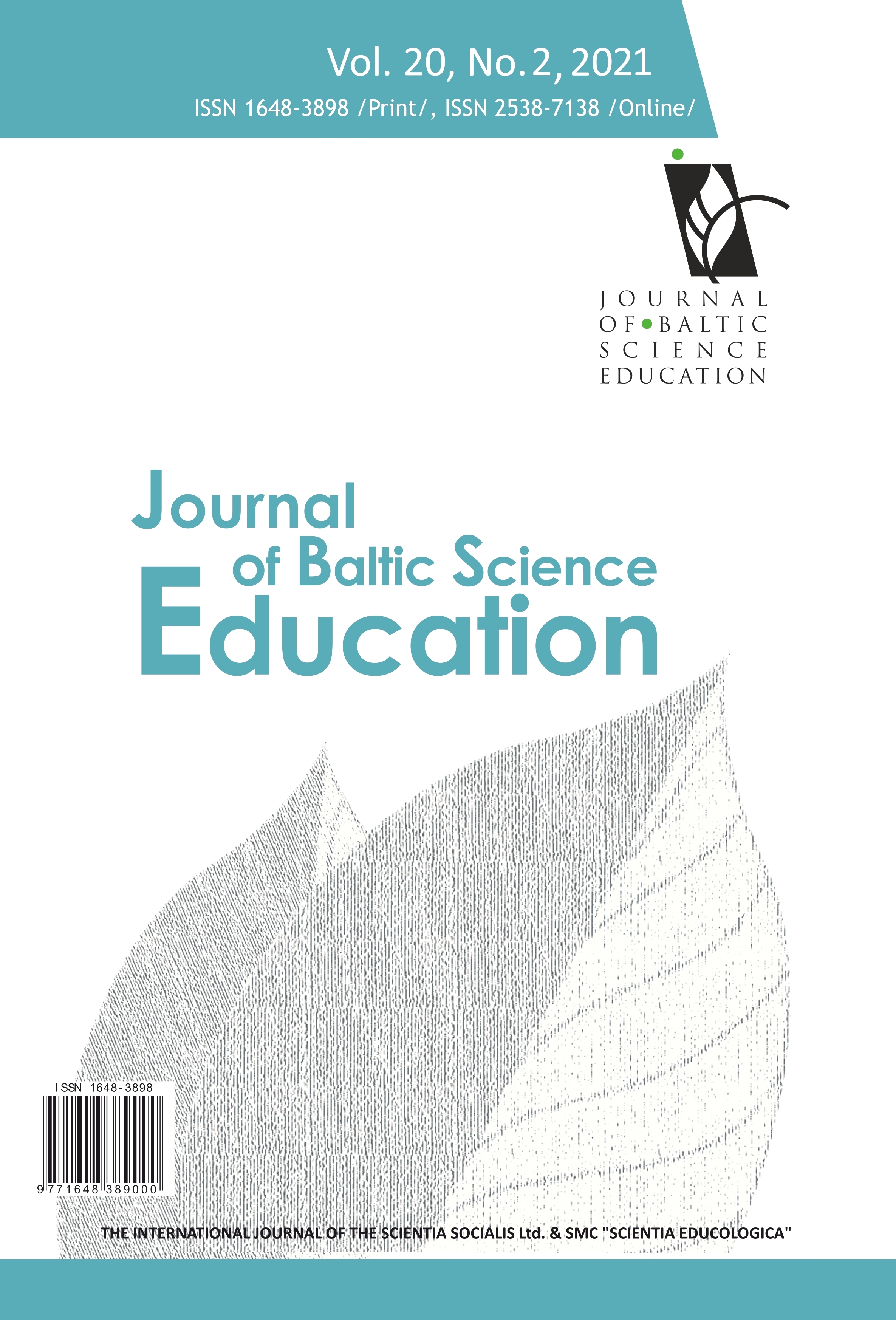PREDICTIVE MODELLING OF PRE-SERVICE SCIENCE AND TECHNOLOGY TEACHERS’ INNOVATIVE BEHAVIOUR
PREDICTIVE MODELLING OF PRE-SERVICE SCIENCE AND TECHNOLOGY TEACHERS’ INNOVATIVE BEHAVIOUR
Author(s): Stanislav Avsec, Vesna Ferk SavecSubject(s): Education, Higher Education
Published by: Scientia Socialis, UAB
Keywords: innovative behaviour; predictive modelling; pre-service teachers; science and technology;
Summary/Abstract: Science and technology (S&T) plays a central role in today’s knowledge- and technology-based society. The transfer of S&T from the education system to the economy should be promoted by teachers using innovative behaviour as an important aspect of providing high-quality education. Several studies have found that a mismatch exists between the economy and the education sector, and that this can be gradually reduced by innovation in the education system. This research aimed to examine the innovative behaviour of pre-service S&T teachers. A sample of 140 pre-service teachers from the University of Ljubljana, Slovenia was selected, and a set of instruments was used to measure their innovative behaviour in classrooms during the 2019–2020 academic year. A model was created and evaluated using multiple regression analysis. The results showed that self-efficacy and attitudes towards S&T strongly predict innovative behaviour, while situational interest may vary depending on the cognitive demands of tasks. A proactive personality was found to be a key factor determining innovative behaviour, while self-efficacy has direct and indirect influences on innovative behaviour, with its indirect influence mediated by creativity and situational interest. These findings have implications for the redefinition of educational design to enhance innovation in the classroom.
Journal: Journal of Baltic Science Education
- Issue Year: 20/2021
- Issue No: 2
- Page Range: 171-183
- Page Count: 13
- Language: English

